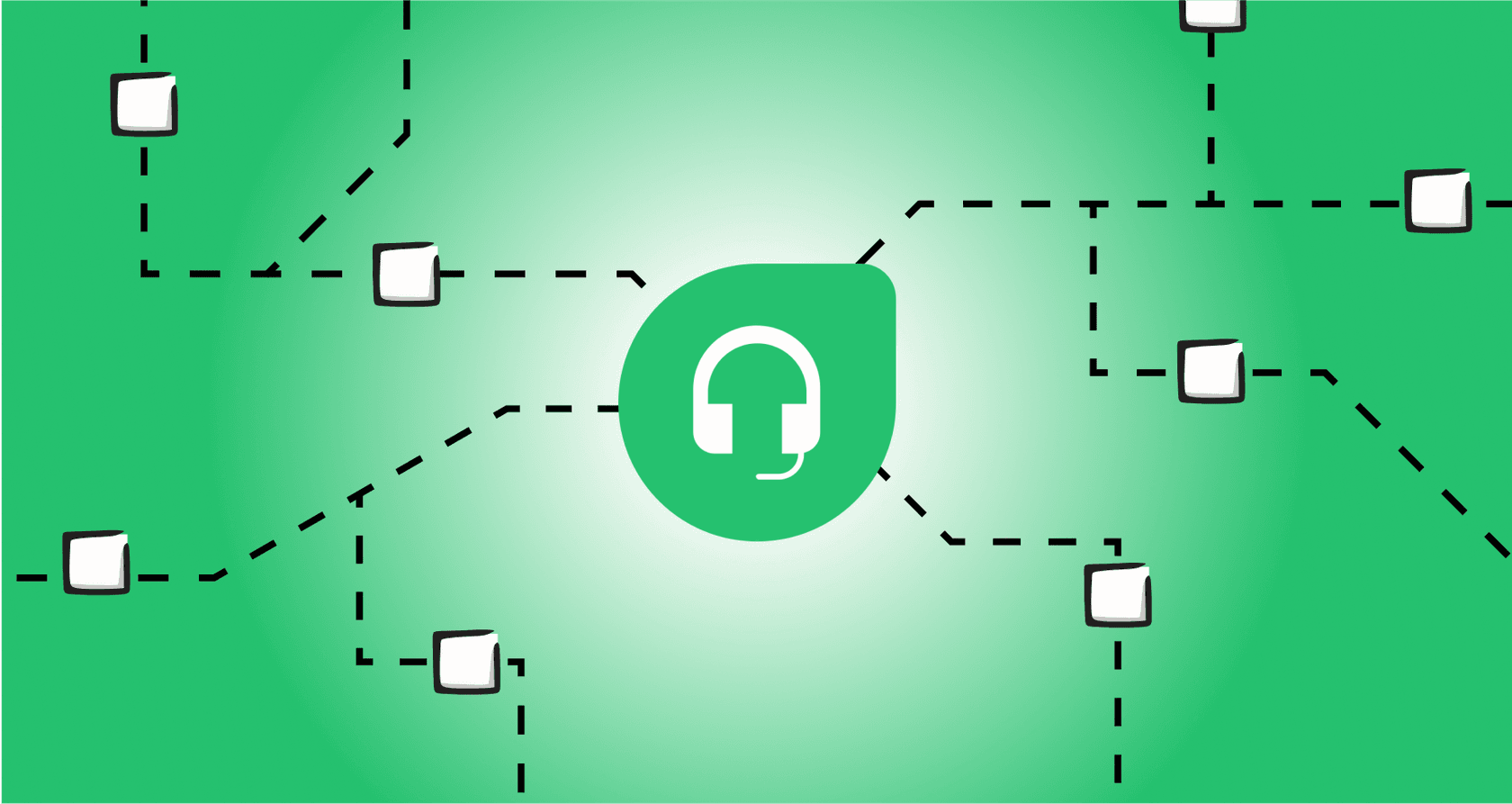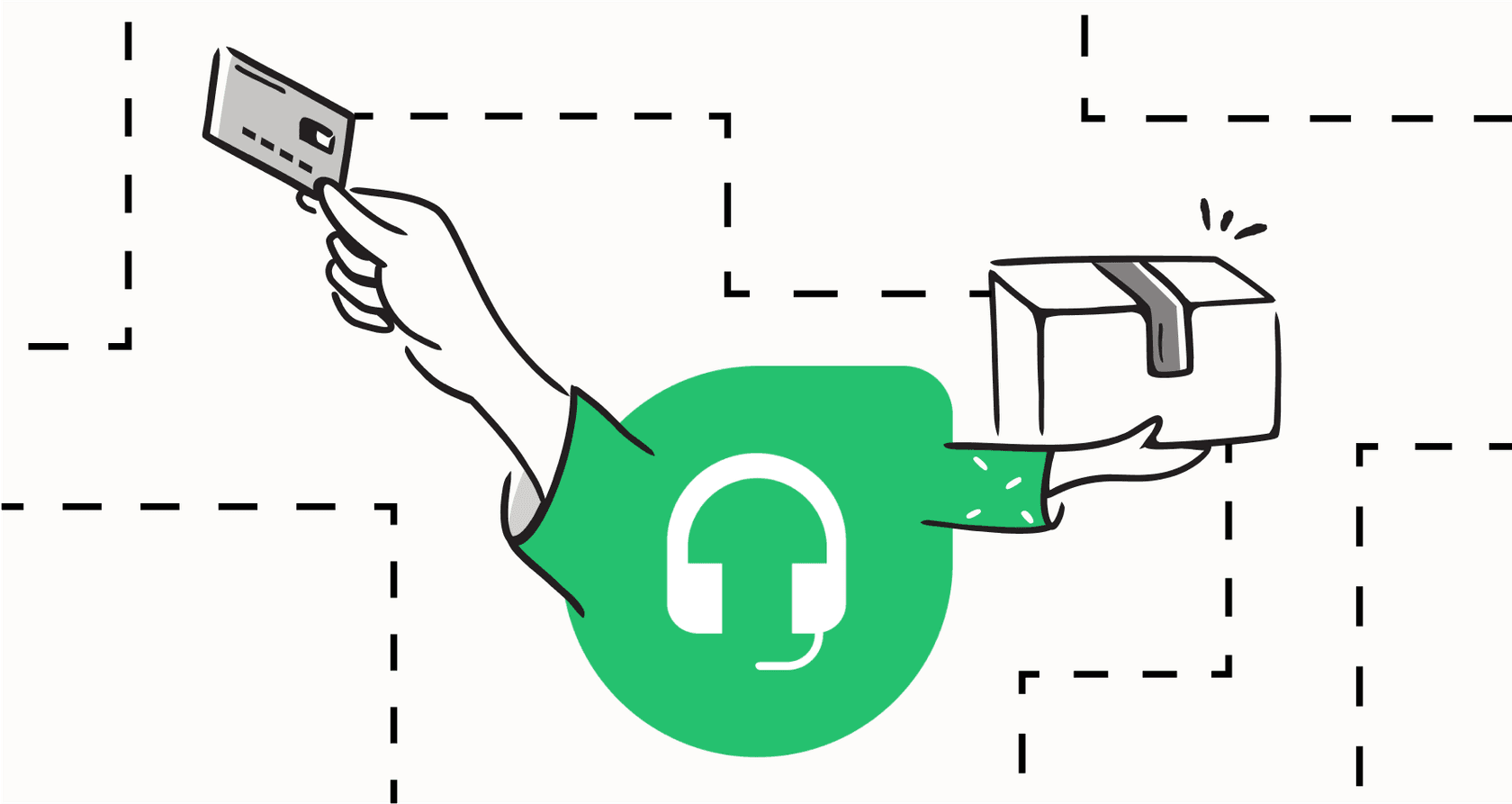A guide to the Freshdesk WhatsApp business integration in 2026

Stevia Putri

Katelin Teen
Last edited January 16, 2026
Expert Verified

Everyone wants to use messaging apps for customer support. It seems like a no-brainer, right? Your customers are already on WhatsApp all day, so meeting them there feels personal, fast, and just plain smart. Connecting your business's WhatsApp to a helpdesk like Freshdesk is a powerful way to scale your reach.
Setting up an enterprise-grade system involves following specific platform rules and navigating pricing models designed for different team sizes.
This guide cuts through the noise. We'll walk through everything you need to know about the native Freshdesk WhatsApp business integration. We’ll cover how it works, the pricing structure, key considerations for setup, and how adding a layer of modern AI can enhance the experience, helping you deliver the kind of support your customers actually want.
What is the Freshdesk WhatsApp business integration?
At its simplest, the integration lets your support team see and reply to WhatsApp messages right from inside Freshdesk. Instead of your agents having to keep an eye on a separate phone or app, those customer chats turn into tickets in one central spot. This makes it much easier to track issues and work together as a team.
Understanding Freshdesk's role
Freshdesk is a well-known customer service tool that helps businesses wrangle conversations from all over the place, whether it's email, phone, web chat, or social media. Its whole job is to take every customer question and turn it into a neat "ticket." From there, tickets can be assigned to agents, tracked, and eventually solved, bringing much-needed order to the workflow of customer support.
Understanding the WhatsApp Business Platform
It's important to clarify that this isn't the regular WhatsApp app you use to text friends. We're talking about the WhatsApp Business Platform, which runs on an API (Application Programming Interface) and is built for businesses handling a lot of customer chats.
This platform gives you a verified business profile, lets you send automated messages for things like shipping updates, and can plug into other business software. To get access, you work with a Business Solution Provider (BSP) or use a tool like Freshdesk that has already built the connection for you.
How to set up the native Freshdesk WhatsApp business integration
Getting WhatsApp hooked up to Freshdesk is a structured process. It involves a few steps that require you to navigate Meta's own systems. Here’s an overview of the setup to help you prepare.
graph TD A[Start: Inside Freshdesk Admin] --> B{Add WhatsApp Channel}; B --> C[Redirect to Meta Sign-up Flow]; C --> D[Connect Meta Business Account]; D --> E[Create WhatsApp Business Account - WABA]; E --> F[Verify Phone Number]; F --> G[Verify Business with Meta]; G --> H{Wait for Approval}; H --> I[Finish Setup in Freshdesk]; I --> J[Live: Messages Appear as Tickets];
You’ll generally need to:
-
Get your ducks in a row. Before you start, you’ll need a phone number that isn't already tied to a personal WhatsApp account. You also need a Meta Business Manager account, which is how Meta confirms you're a real business.
-
Make the connection in Freshdesk. You’ll start inside your Freshdesk admin settings, add WhatsApp as a new channel, and then follow the sign-up flow hosted by Meta. This is where you connect your Meta Business account and create a WhatsApp Business Account (WABA).
-
Wait for verification. Meta verifies both your phone number (with a text or call) and your business itself. This business verification part is important for increasing your messaging limits beyond the initial 250 conversations in a 24-hour period.
-
Finish up in Freshdesk. Once you’re connected and verified, messages to your business number will start appearing as tickets in Freshdesk for your agents to handle.
This process ensures a secure and verified connection. For teams looking for an even faster start, complementary tools like eesel AI can be added to your helpdesk. You can connect it to your Freshdesk account and be up and running in a few minutes, helping you manage knowledge without waiting for Meta's final approvals.
Key considerations for the standard Freshdesk WhatsApp business integration
Getting your WhatsApp messages into Freshdesk is a great first step. To get the most out of it, it's helpful to understand the platform rules set by Meta and how Freshdesk manages these interactions.
Understanding the 24-hour reply window
A key rule for teams using the WhatsApp API is the 24-hour reply window. This Meta rule states that you can't send a free-form message to a customer more than 24 hours after their last message. If you need to follow up after that, you’ll use pre-approved "template messages."
Template messages are designed to keep communication professional and structured. If a customer has a complex issue, your agent can use a standard template to let them know an update is ready.
This is where a complementary AI can assist. An AI agent from eesel AI, which learns from your old tickets and entire knowledge base, can help resolve issues more quickly. By providing accurate answers promptly, it helps your team stay within that 24-hour window more consistently.
Maximizing your knowledge base with Freshdesk
Freshdesk’s own AI, Freddy, is highly effective at using information within Freshdesk, such as your help articles and saved replies. To provide even more comprehensive support, businesses often look to connect data from other platforms as well. You might have technical guides in Confluence, shipping policies in Google Docs, or product details on your website.
When agents have easy access to all that information, they can give even more thorough answers, reducing the time spent searching through different tabs.
eesel AI is designed to complement this. It can connect to all your knowledge sources, pulling information from various places with just a few clicks. By learning from past tickets, internal wikis, and public websites, it serves as a helpful addition to your team's workflow, giving agents the comprehensive answers they need right where they're working.
Understanding Freshdesk's tiered pricing model
Freshdesk offers tiered plans to match different team sizes, ensuring you only pay for the features you need. When budgeting for WhatsApp, there are a few components to consider:
-
Your Freshdesk subscription. This is the standard per-agent, per-month fee for the platform.
-
AI add-ons. Features like Freddy AI Copilot are available as add-ons to further assist your agents.
-
WhatsApp conversation fees. Meta bills for every 24-hour conversation. The price depends on who starts the chat and the customer's location.
-
Service fees. Freshdesk manages the billing and integration of these Meta fees, which may include a standard service charge for the convenience of centralized billing.
This model allows for scalability as your business grows. For teams looking for additional predictability, eesel AI's pricing offers plans based on AI interactions, providing a steady cost structure that works alongside your Freshdesk setup.
A breakdown of the pricing structure
To give you a clearer picture, here are the main costs associated with the Freshdesk WhatsApp business integration. This helps you plan your support budget effectively.
The table below lays out Freshdesk's main plans that support the WhatsApp integration.
Table: Freshdesk pricing tiers (billed annually)
| Plan | Price per Agent/Month | Key Features for WhatsApp | Freddy AI Copilot Add-on |
|---|---|---|---|
| Growth | $15 | Basic ticketing, help center | $29/agent/month |
| Pro | $49 | Custom reporting, advanced ticketing | $29/agent/month |
| Enterprise | $79 | Skill-based assignments, audit logs | $29/agent/month |
On top of these software costs, Meta sets the prices for WhatsApp conversations, which are categorized into Utility, Marketing, and Service. Freshdesk ensures these are integrated smoothly into your monthly billing.
Enhancing Freshdesk WhatsApp business with AI
Connecting Freshdesk and WhatsApp is a great way to meet customers where they are. While the native integration is robust, adding a smart layer like eesel AI can make the setup even more powerful.
Here’s how eesel AI complements the native integration:
-
It connects to your entire ecosystem. By linking your scattered knowledge sources, eesel AI helps provide complete, accurate answers right away, which assists your team in resolving tickets faster.
-
Quick and easy setup. You can connect your knowledge sources and integrate with your Freshdesk account in minutes.
-
Simulation and control. You can test eesel AI on past tickets to see how it performs before going live. You have full control over its personality and the specific questions it handles.
-
Predictable scaling. With clear plans and no per-resolution fees, you can grow your support volume with confidence in your budget.
Move beyond just managing messages with Freshdesk WhatsApp business
Connecting Freshdesk and WhatsApp is a smart move for any business in 2026. While there are platform rules and tiered pricing structures to keep in mind, the combination offers a powerful way to reach your customers.
To deliver the best support, you can pair Freshdesk's industry-leading ticketing system with an intelligent AI that understands your entire business.
Don’t just manage your WhatsApp conversations: optimize them. You can try eesel AI for free and see how it can enhance your Freshdesk and WhatsApp support in a matter of minutes.
Frequently asked questions
This integration centralizes all WhatsApp customer messages into Freshdesk as tickets. It allows support agents to view and respond to these chats directly from their Freshdesk interface, streamlining communication and enabling better tracking of issues.
Setting it up involves having a dedicated phone number and a Meta Business Manager account. You then initiate the connection within Freshdesk, which guides you through Meta's signup flow to link your Meta account and create a WhatsApp Business Account (WABA), followed by phone and business verification.
Users should be mindful of Meta's 24-hour reply window, which requires the use of approved template messages for later follow-ups. Additionally, teams can enhance their support by integrating AI that connects to a wider range of company knowledge sources.
Following Meta's guidelines, after 24 hours from the customer's last message, agents use pre-approved template messages to re-engage. This helps maintain professional communication standards while working within the platform's established rules.
The pricing includes your Freshdesk subscription fee, any chosen AI add-ons, and Meta's charges for each 24-hour conversation. Freshworks manages these costs through a structured billing system that simplifies the complexity of Meta's direct fees.
By connecting to various knowledge sources, an intelligent AI can provide comprehensive and accurate answers instantly. This significantly increases first-contact resolution rates, reduces agent effort, and improves customer satisfaction by making support faster and more informed.
Share this post

Article by
Stevia Putri
Stevia Putri is a marketing generalist at eesel AI, where she helps turn powerful AI tools into stories that resonate. She’s driven by curiosity, clarity, and the human side of technology.




